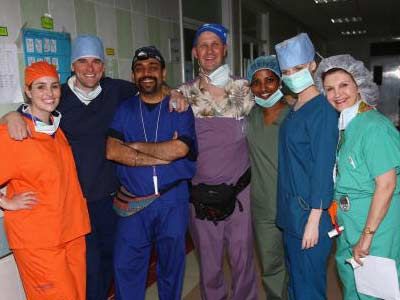The woman's voice trembles. She whispers, as though she's afraid of being overheard. But she is saying perhaps the most important words of her life, "My husband just hit me. I think he's going to do it again. I need to get out of the house. I need help."
The person listening to her is a volunteer at a help hotline for domestic abuse. The operator has been trained in helping people in crisis situations, and she's connected to a network of other resources -- EMTs, ambulance services, shelters, safe houses, counselors, lawyers -- that, together, can help the woman get out of both the immediate danger and the long-term abusive situation.
Advertisement
Difficult times come to most everyone, and in many cases -- whether you know it or not -- a hotline is standing by to help. Most of these hotlines are offered by nonprofit organizations. Hotlines offer one of the fastest possible ways for an organization to get that most valuable of resources -- information -- to someone who needs it. In developing areas of the world, a hotline allows information to travel fast, sometimes circumventing official channels, where it may be hampered by censorship or political agendas [source: FOCUS]. Many of these hotlines are staffed by trained volunteers.
Hotline work can be difficult. It often involves being the only cool-headed person in a crisis. Though calling a hotline may be the beginning of the road to recovery, the caller often feels as though it's a last resort. Dealing with the caller's desperation can be tough.
At the same time, if you care passionately about helping others, volunteering for a hotline offers you an opportunity to do so -- directly. You'll receive training that will likely stand you in good stead for your entire life. You will know, without question, that you are making a difference.
In this article, we'll take a look at different hotlines that might need your help, as well as what will be asked of you as a hotline volunteer.
Advertisement


